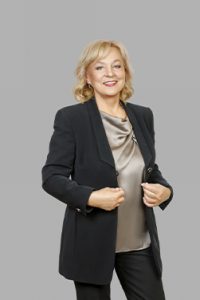Laboratory of Cell Biotechnology and Cytotherapy
The Laboratory of Cell Biotechnology and Cytotherapy was established in 2011 as a structural subdivision of the scientific department.
The laboratory is home to a commercial Cord Blood Bank, which currently stores over 1,600 samples. Each unit of cord blood is processed, then frozen to -196 ° C and stored until requested by the Bank’s client. More information about the services of the Cord Blood Bank can be found on the website cordblood.by
The laboratory has developed methods for obtaining and expanding mesenchymal stem cells (MSC) from postpartum placenta tissue. A cryobank of donor placental MSC has been created for further use in cell therapy.
The main areas of scientific activity of the laboratory are:
- development of methods for obtaining and expanding mesenchymal stem cells (MSCs) from postpartum placental tissue;
- creation of biocomposites based on MSCs differentiated in the chondrogenic and osteogenic directions;
- obtaining a universal mesenchymal stem cell transplant for the treatment of: severe forms of graft-versus-host disease (GVHD), Crohn’s disease, liver cirrhosis, various forms of drug-resistant tuberculosis, chronic obstructive pulmonary disease (COPD), ischemic cardiomyopathy, aplastic anemia;
- creation of a transplant of neurogenic-induced cells for the treatment of diseases of the central nervous system (CNS);
- study of homing of mesenchymal stem cells after administration to a patient;
- creation of an individual antitumor vaccine based on the patient’s dendritic cells for the treatment of chemoresistant tumors.
Laboratory staff of the laboratory of cell biotechnology and cytotherapy:
 |
Isaykina Yanina Ivanovna The main topics of scientific research: cellular biotechnology and reparative medicine. +375 (17) 287-10-04 |
 |
|
|
Zhernosechenko Anna Aleksandrovna |
Research interests: cell differentiation in the chondrogenic and osteogenic direction |
|
Lyakh Elena Gennadievna |
Research interests: study of the properties of bone marrow and postpartum placenta MSCs, the potential for their use in clinical practice |
|
Frolova Rita Leonidovna research fellow |
Research interests: creation of a vaccine based on dendritic cells, differentiation of cells in the neurogenic direction |
|
Novikova Maria Andreevna |
Research interests: study of the properties of bone marrow and postpartum placenta MSCs |
|
Savich Yulia Valerievna |
Research interests: study of the properties of bone marrow and postpartum placenta MSCs |
In addition to scientific activities, the laboratory also carries out clinical activities:
- creation of a hematopoietic stem cell transplant for allogeneic and autologous transplantation in children with oncological, hematological and immunological pathologies;
- creation of a mesenchymal stem cell transplant;
- freezing of the obtained stem cells and storing them in the laboratory’s cryostorage at an ultra-low temperature until the patient undergoes a transplant;
- the use of such latest technologies of immunomagnetic cell selection as CD34+ positive selection, CD3+/CD19+ and TCRαβ/CD19+ depletion, which make it possible to successfully solve the problem of selecting donors for patients by involving parents and conducting successful haploidentical stem cell transplantation;
- performing an analysis of the content of colony-forming units of granulocytes and macrophages (CFU-GM) and burst-forming units of erythrocytes (BFU-E) in the bone marrow, which is of great diagnostic value in such pathologies as aplastic anemia, myelodysplastic syndrome, neutropenia and other hematological diseases.
Equipment:
The laboratory has two aseptic modules equipped with air conditioning and a Weger HEPA filter, corresponding to the parameters and requirements of GMP. The modules are equipped with high-tech equipment that allows obtaining and preserving a biomedical cell product, with the possibility of further diagnostic research:
- laminar flow cabinets of the 2nd protection class (Faster, Italy);
- CO2 incubators (Thermo Electron Corp., USA);
- installation for immunomagnetic selection of stem cells “CliniMACS plus” (Miltenyi Biotech, Germany);
- blood cell separation devices “Sepax” (BioSafe, Switzerland);
- programmable cryofreezer for biological material “IceCube” (SyLab, Austria);
- MVE series cryostorages (Chart Industries Inc, USA);
- Inverted fluorescent microscope “Eclipse” (Nikon, Japan).

 Email:
Email:  43 Frunzenskaya st.,
43 Frunzenskaya st.,





